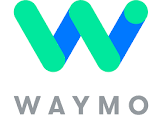$GOOGL $TM $FNV
#Waymo #Tokyo #Robotaxi #Alphabet #AutonomousVehicles #EV #MobilityTech #AI #TechInnovation #Japan #SelfDrivingCars #SmartCities
Waymo, the self-driving car unit of Alphabet Inc., is set to make its first foray into international markets with plans to begin testing in Tokyo by 2025. The initiative marks a significant milestone for the company as it expands beyond its U.S. operations, signaling increased confidence in its autonomous vehicle technology and its ability to cater to diverse urban settings worldwide. The move follows agreements with prominent Japan-based robotaxi operators, undoubtedly supported by Tokyo’s burgeoning demand for smart city solutions and next-generation transportation services. For Alphabet ($GOOGL), this strategic push highlights its ambitions to dominate the increasingly competitive mobility tech sector, a market projected to grow at a compound annual rate exceeding 20% over the next decade.
The partnerships that Waymo secured with Japanese firms underscore a broader trend of collaboration between tech giants and established local players in the mobility space. Japan, known for its advanced automotive industry and forward-thinking urban infrastructure projects, offers a fertile ground to deploy autonomous mobility solutions. This development could set the stage for Waymo to rival domestic contenders such as Honda’s self-driving units or Toyota’s collaboration with SoftBank through its mobility project, Monet. Toyota Motor Corporation ($TM), a major player in Japan’s automotive industry, and other competitors will likely evaluate the implications of Waymo entering their domestic market, which may prompt increased R&D investments in autonomous and electric vehicle technologies.
The economic and market impact of this new phase in Waymo’s expansion could be considerable. Alphabet’s pivot to Japan marks a strategic alignment with high-growth global markets, positioning itself as a leader in the widespread adoption of autonomous vehicles. An international move also allows Alphabet to mitigate certain risks associated with regulatory complexities in the United States, where stringent oversight and high testing costs have sometimes impeded rapid scaling. Tokyo’s regulatory landscape, while strict, tends to be highly incentivized toward futuristic urban tech innovations, potentially giving Alphabet an edge in refining its technological and operational capabilities for future Asian and European expansions.
For investors, the announcement elevates Alphabet’s long-term growth narrative, leveraging innovation in a future-focused industry. The autonomous vehicle market, tagged at $94 billion in 2022, is anticipated to surpass $2 trillion by 2030. Alphabet’s entry into Tokyo could catalyze favorable sentiment for its stock ($GOOGL) as it diversifies into international markets. Moreover, Japanese manufacturers like Toyota, as well as other regional innovators in the mobility ecosystem, could face increased pressure to partner or compete globally with Waymo’s pioneering developments. While the test program in Tokyo won’t likely generate immediate revenue, it lays a crucial foundation for Waymo’s scalability and Alphabet’s strength in global autonomous innovation leadership.







Comments are closed.